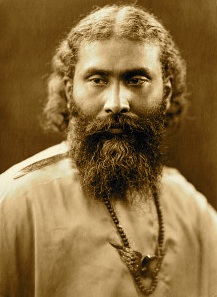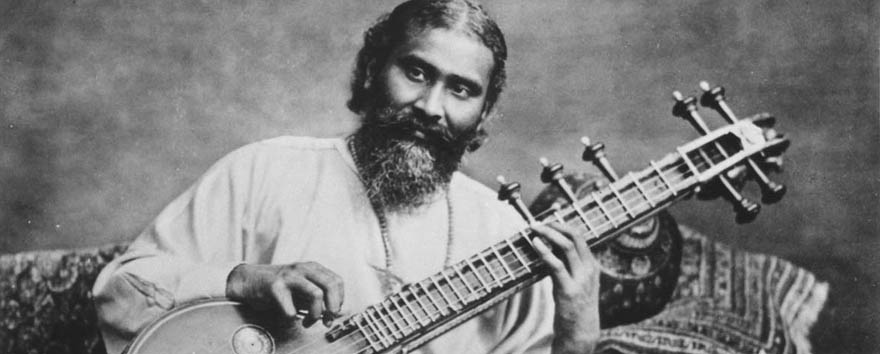Life and Teachings of Hazrat Inayat Khan
Sufism takes away the boundaries which divide different faiths by bringing
into full light the underlying wisdom in which they are all united.
Hazrat Pir-o-Murshid Inayat Khan was the founder of The Sufi Order in the West (now called the Inayati Order) and one of the spiritual giants of the 20th century, and many would say of all time. As a young man in India, he was a renowned singer of classical Indian music (the grandson of the great Moula Baksh) and received the supreme honour of the title of “Tansen” from the Nizam of Hyderabad.
was the founder of The Sufi Order in the West (now called the Inayati Order) and one of the spiritual giants of the 20th century, and many would say of all time. As a young man in India, he was a renowned singer of classical Indian music (the grandson of the great Moula Baksh) and received the supreme honour of the title of “Tansen” from the Nizam of Hyderabad.
He was initiated into the Chishti Order of Sufism, having received initiation from his Murshid (teacher) Shaykh Muhammed Abu Hashim Madani, and was also initiated and steeped in the traditions of the Suhrawardiyya, Qadiriyya and Naqshbandi. It was on the counsel of his Murshid that he left his musical fame in India to travel to North America and Europe in order to “harmonize the East and the West” by bringing a Universal form of Sufism that transcended any cultural or religious boundaries.
He arrived in the West in 1910 and performed Indian classical music with his brothers and cousin, but soon dedicated himself completely to the delivering of a profound and unparalleled body of Sufi teaching and mystical practice. An examination of his teachings reveals Hazrat Inayat Khan to be prophetic, a feminist and thinker far ahead of this time, and one who would bring a spiritual message for the whole planet that continues to resonate for humanity today. The magnitude of the body of his teaching cannot be exaggerated, with his lectures, poetry, and writing filling 13 volumes of the Sufi Message of Hazrat Inayat Khan in addition to many more unpublished papers and lectures. The fact that almost all of his published teachings were delivered in inspired talks without notes to his audiences during a mere ten-year period of between 1916 and 1926, is nothing short of staggering.
Hazrat Inayat Khan married Ora Ray Baker (Pirani Ameena Begum), a second-cousin of Christian Science founder Mary Baker Eddy, and they had had four children; Noor-un-Nisa (1914), Vilayat (1916), Hidayat (1917) and Khair-un-Nisa (1919). He returned to India in the fall of 1926, where he died on February 5, 1927 after a brief illness.
Read a more detailed biography https://wahiduddin.net/hik/hik_origins.htm or http://www.pirzia.org/hazrat-inayat-khan/
Listen to Hazrat Inayat Khan sing Allahu Akbar
There have been Sufis at all periods of human history. Though they have lived in different parts of the world, speaking different languages and born in different faiths and beliefs, they have recognized and sympathized with each other, through the oneness of their understanding. – Hazrat Inayat Khan

